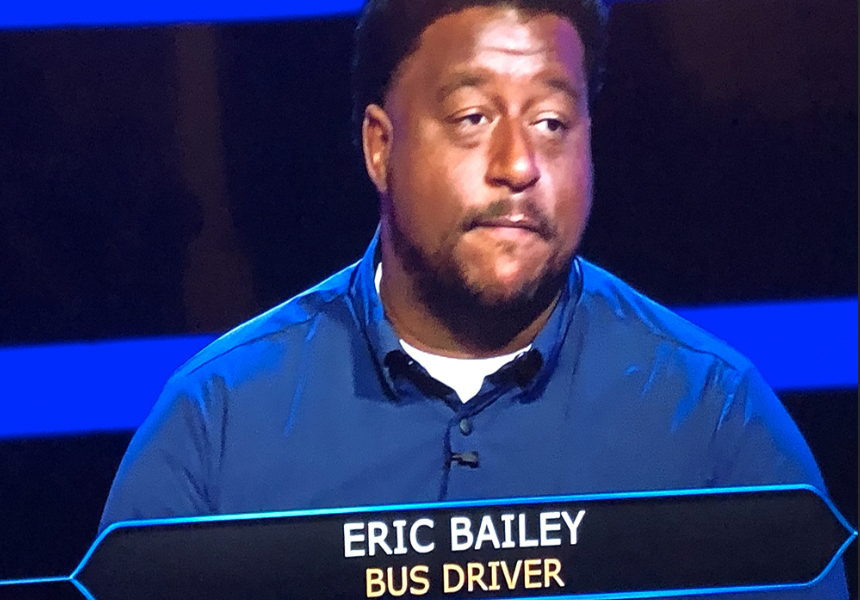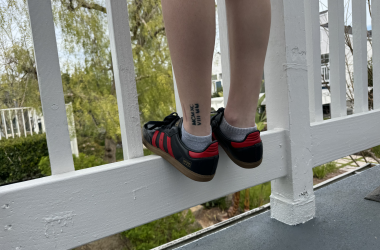The past year has been rough by any conceivable measure—with canceled commencement ceremonies, a retracted job market, and of course, the biggest disruption to public health in a century. Regardless of how many negatives 2020 brought, I was fortunate enough to take away some positives from it.
Working in transportation as a transit bus operator, I was dubbed “essential,” a word that would end up summing up 2020.
I would chronicle my nightly adventures via Instagram, shuttling people around the city with hashtags like “#essentialworkers,” as duty called regardless of the remote learning I was participating in at school.
Little did I know, that the running journal I was creating on Instagram would catch the attention of a TV producer.
“This has to be a scam,” I thought. “There’s no way this is legit.”
On Aug. 7, I received an Instagram DM from someone who claimed to be a producer with ABC, and was handling casting for the upcoming season of Who Wants to be a Millionaire. The game show that tests contestants’ general knowledge of fun facts and oddities was looking to cast essential workers who were on the frontlines during the coronavirus pandemic.
I initially attributed the message to the “Nigerian Prince” phishing scam and almost wrote it off as spam.
My curiosity was eventually piqued, and when I wanted to know how legitimate the message was so I filled out a questionnaire that led to a phone interview.
My suspicion began to subside.
After what seemed like a successful phone interview consisting of questions to assess competence and general knowledge, I was given an appointment with another producer in New York via Zoom, another word summing up the year.
The recorded interview was sent to network executives back in Los Angeles, who were impressed with my story.
I returned to school at the age of 31, and transferred to Long Beach State with a toddler, while working full-time; only to have the commencement ceremony postponed, and still have to work through the pandemic.
Upon the results of a COVID-19 test and background investigation, I was invited to be a contestant on the show Aug. 25.
Walking into a soundstage on a studio lot was a relatively new experience for me. Being a journalism student gives you glimpses of these things, but having focused on the print aspect of reporting, the lights and cameras was an exciting change of pace.
“Don’t screw this up,” I kept saying in my head. “Because if you do, it’ll be documented for the world to see.”
The stage producer assigned to me and the “smartest person I know” gave us a brief tour of things and a rundown on how filming would go with COVID-19 restrictions.
Masks were required for everyone while not filming and everyone had to remain at least six feet apart.
My friend of sixteen years Alberto Argueta, a recent juris doctorate graduate from Laverne University, whom I invited as the “smartest person I know” could assist me with the first 10 questions.
“If all else fails and we lose, I wonder if they’ll let us keep this gift basket,” Argueta asked me.
“That’s one messed up parting gift,” I said.
“Sorry, you didn’t win any money, but here’s a lovely wicker basket with a bunch of junk food for your trouble,” I mimicked.
Joking around helped ease most of the nerves.

After being given the rundown on how everything would go and being prepped by the studio’s legal team on what I could and couldn’t do, one of those things was a non-disclosure agreement to not talk about filming until the episode aired, I was taken to the set to meet with the host of the show, Jimmy Kimmel.
We were given a few minutes to chat with him before filming to calm any nervousness I felt. Kimmel was a delight to talk to, and soon everyone took their places, and it was go-time.
I shot my shot.
I successfully answered nine questions, but both Argueta and I were stumped with what excess skin over the elbow was called.
Olecranal skin.
Not knowing that ended up costing me a potential $968,000, but I never once felt defeated by it.

I sailed through nine questions. I took the best guess I could with word association.
I had a moment where I was recognized for working on the frontline during the biggest disruption to public health in a century.
I got to feel what it was like as a journalist to be on the other side of the notepad with two local papers writing about my TV appearance.
As a working student that had to cross the finish line to graduate and serve the public during a time when medical experts highly recommended staying home has been hard.
However, to be selected to represent such a resilient group of people dubbed essential, and to be recognized as such, was an experience that was worth more than any amount of money.
Walking away with $32,000 felt pretty good too.




